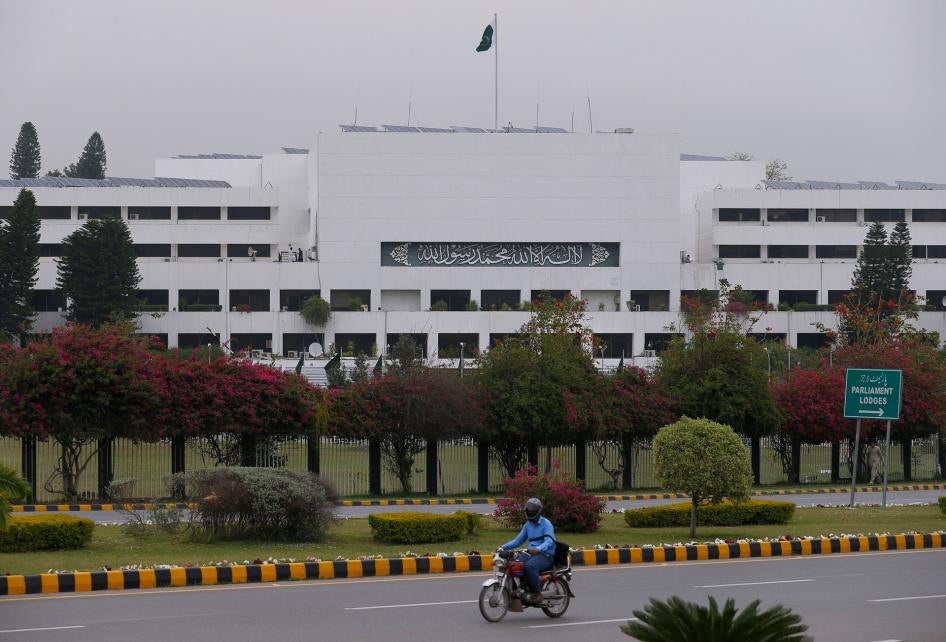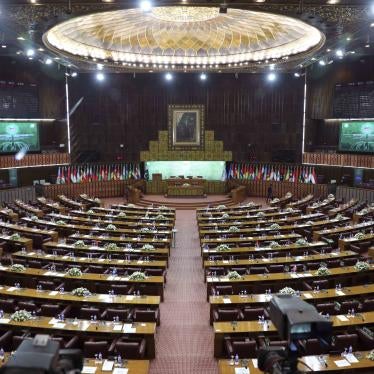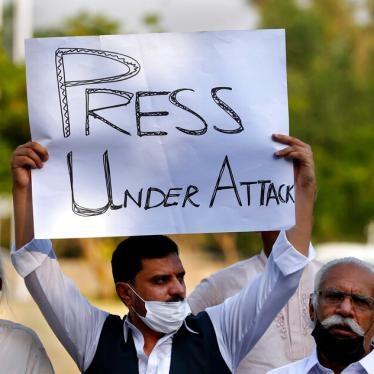Pakistani Prime Minister Imran Khan’s move on Sunday to dissolve parliament rather than face a no-confidence vote that could remove him from power effectively deprives Pakistani citizens of their right to choose their government.
On April 3, Qasim Khan Suri, the deputy speaker of Pakistan’s national assembly, dismissed a no-confidence motion against the prime minister. Claiming that “loyalty to the state was the basic duty of every citizen,” and that the no-confidence move was a “foreign conspiracy,” Suri refused to allow the vote. Khan’s government then dissolved the national assembly and called for new elections in 90 days.
The move has plunged Pakistan into constitutional crisis. Under Pakistan’s constitution, the prime minister ceases to hold office if a majority of the National Assembly votes for a motion of no confidence – Imran Khan’s party appeared to have lost its majority by April 3. The action allows Khan to continue as prime minister until a caretaker government takes over, with neither a national assembly nor a federal cabinet.
Legal experts, journalists, and rights group have condemned Khan’s maneuver as an assault on the country’s democracy. Now the Supreme Court of Pakistan, which took up the matter on April 3, is the only constitutional body empowered to adjudicate on the legality of the government’s dissolution. A hearing is scheduled on Wednesday, April 6.
The situation prior to the no-confidence vote was already fraught. Government officials threatened to “blow up the opposition in a suicide attack” and called on supporters to go out and take “traitors” to task. One member of parliament from Khan’s party tweeted that all opposition members should be shot – a tweet he subsequently deleted. Senior members of Khan’s party have called for opposition members to be arrested for treason.
Imran Khan’s dissolution of parliament to prevent it from voting so that he could remain in office threatens core democratic principles. It infringes on the rights of Pakistani citizens to choose their government, which is protected under the International Covenant on Civil and Political Rights. The government’s threatened use of violence, allegations of treason, and abrogation of the constitution are hallmarks of dictatorship, which Pakistanis have previously endured and should not have to endure again.










